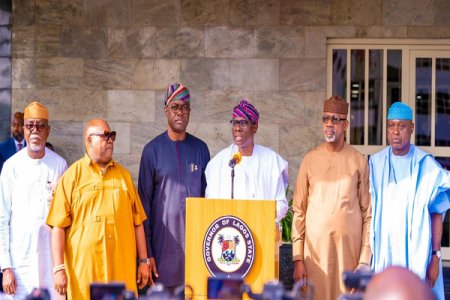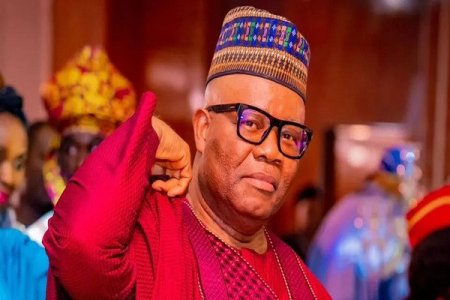
South-west governors renew calls for establishing state police forces in Nigeria, citing the need for enhanced local security control and rapid response amid rising insecurity challenges in their region.
South-west governors in Nigeria have once again amplified their calls for the establishment of state police forces, citing concerns over the prevailing security challenges plaguing their region.
During a meeting held on Monday in Lagos state, the governors elected Babajide Sanwo-Olu, the governor of Lagos, as the new chairman of the South-West Governors' Forum. This followed the demise of the former chairman, Rotimi Akeredolu, who was the governor of Ondo State.
In a communique issued after the closed-door meeting, Sanwo-Olu stated that the relative peace currently experienced in the South-west region is due to the collaboration between the regional security outfit, Amotekun, and other security agencies.
However, the governors emphasized their unwavering support for the creation of state police forces, asserting that such a decentralized policing structure would bolster security efforts and enable more localized responses to crime and insecurity.
"The forum commends the relative peace in the South-West region and notes the collaboration between all security agencies and the Amotekun Corps. We reaffirm our full support for State Police," Sanwo-Olu stated in the communique.
The governors acknowledged the federal government's efforts to enhance food security but urged the rehabilitation of other federal infrastructure within the region.
Additionally, the communique outlined plans for the commissioners of agriculture from the southwest states to convene and develop a collaborative framework to leverage each state's comparative advantages in the agricultural sector.
Regarding the ongoing wage dispute between the federal government, the Nigeria Governors' Forum (NGF), and labor unions, Sanwo-Olu called for continued negotiations and a resolution through dialogue with the organized private sector.
The renewed push for state police forces by the South-west governors reignites a long-standing debate over security, federalism, and the distribution of power in Nigeria. Proponents argue that decentralized policing would enhance local control and enable swifter responses to security threats, while critics raise concerns about potential abuse, politicization, and the lack of accountability.
As the discourse around state police continues, stakeholders across the country will closely examine the potential implications, challenges, and opportunities associated with such a significant restructuring of Nigeria's security apparatus.





